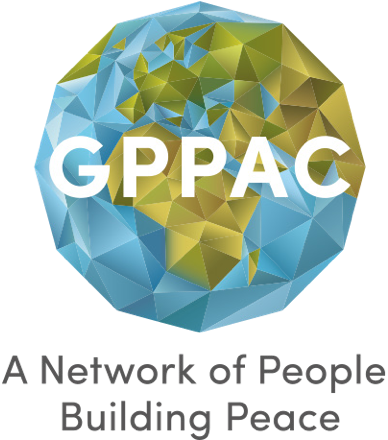

Darynell Rodríguez Torres
GPPAC Executive Director
In the same way that peace is more than the absence of war, inclusivity is more than the absence of exclusion. Often, the concept of inclusivity is associated with the extension of special rights and special access to spaces previously unavailable. It can seem a ‘privilege’ that can be granted or claimed.
Inclusivity is not about granting access to the excluded or marginalised. It should be broadly understood as a process for collaboration, bringing together different perspectives and contributions. Inclusivity requires an understanding and acceptance that everybody has a role in building our society, and that inclusive processes lead to better results. It is about establishing conditions and mechanisms that enable people to participate, contribute and share responsibilities.
The work of GPPAC in 2019 reflects this broader understanding of inclusivity. This report showcases some of the initiatives undertaken by our members all over the world and by our team at the Global Secretariat. Many of these activities create new spaces and mechanisms for collaboration with other actors. They promote the active role of civil society in building more secure and peaceful communities, free from fear, want and indignity.
Time and time again we see the same approach. ‘Hard security’ - focusing on military, police and criminal justice solutions - dominates state and inter-state security agendas across the world. But how hard is this security really? And whose security does it serve? To us, it's plain and simple: people should be at the heart of security. Security for the people, by the people.
This means that decisions should be made by people who represent all levels of society. We need inclusivity to be central in peacebuilding processes. Without women, youth, and other often marginalised groups, sustainable peace can never be achieved. The way we attempt to make peace needs to change. It is time to redesign the table.
This is being recognised more and more in the peacebuilding world. Ensuring that youth and women are part of peace processes and conflict prevention is at the heart of what we do. In 2015, the UN recognised the importance of youth in building peace and adopted the historic resolution UNSCR 2250 on Youth, Peace and Security. In 2020, we will celebrate twenty years of UN Security Council Resolution 1325 on Women, Peace and Security. Sustainable peace can only be achieved when all members of society are engaged and participate, regardless of their gender, age, religion, race, class or nationality. But global frameworks are not enough. Real change only happens when it is enacted at the global, regional, national and local level.

GPPAC members around the world have a long history of putting this into practice. In Jordan, Saana Albanawi works with women to include them in the development of policies and plans that impact them. Adi Vasulevu Merewalesi Levu brings together men and women to address domestic violence in Fiji. For over twenty years, Lucy Nusseibeh has been working for the fair treatment of Palestinians, non-violent activism, and for youth and women’s empowerment.
We continued our inclusivity work in 2019. Two major projects focused on youth empowerment in Kyrgyzstan and on youth becoming agents of change in Uganda. We are excited to share with you that both projects were successful and that young people who participated in the projects feel empowered. They feel that they themselves can make a change, and can deal with challenges in their countries through peaceful means.
These are just some of the examples of brave women and young peacebuilders from around the world. We are excited to share their stories and some of last year’s successes with you in our annual report.
Gus Miclat
Executive Director, Initiatives for International Dialogue, the Philippines.